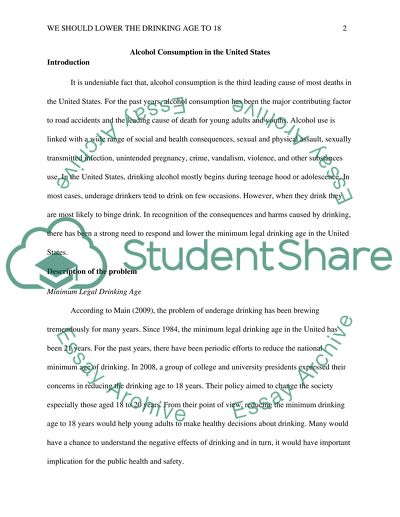Cite this document
(“Alcohol Consumption in the United States. We should lower the drinking Research Paper”, n.d.)
Alcohol Consumption in the United States. We should lower the drinking Research Paper. Retrieved from https://studentshare.org/sociology/1487160-alcohol-consumption-in-the-united-states-we-should-lower-the-drinking-age-to-18
Alcohol Consumption in the United States. We should lower the drinking Research Paper. Retrieved from https://studentshare.org/sociology/1487160-alcohol-consumption-in-the-united-states-we-should-lower-the-drinking-age-to-18
(Alcohol Consumption in the United States. We Should Lower the Drinking Research Paper)
Alcohol Consumption in the United States. We Should Lower the Drinking Research Paper. https://studentshare.org/sociology/1487160-alcohol-consumption-in-the-united-states-we-should-lower-the-drinking-age-to-18.
Alcohol Consumption in the United States. We Should Lower the Drinking Research Paper. https://studentshare.org/sociology/1487160-alcohol-consumption-in-the-united-states-we-should-lower-the-drinking-age-to-18.
“Alcohol Consumption in the United States. We Should Lower the Drinking Research Paper”, n.d. https://studentshare.org/sociology/1487160-alcohol-consumption-in-the-united-states-we-should-lower-the-drinking-age-to-18.


